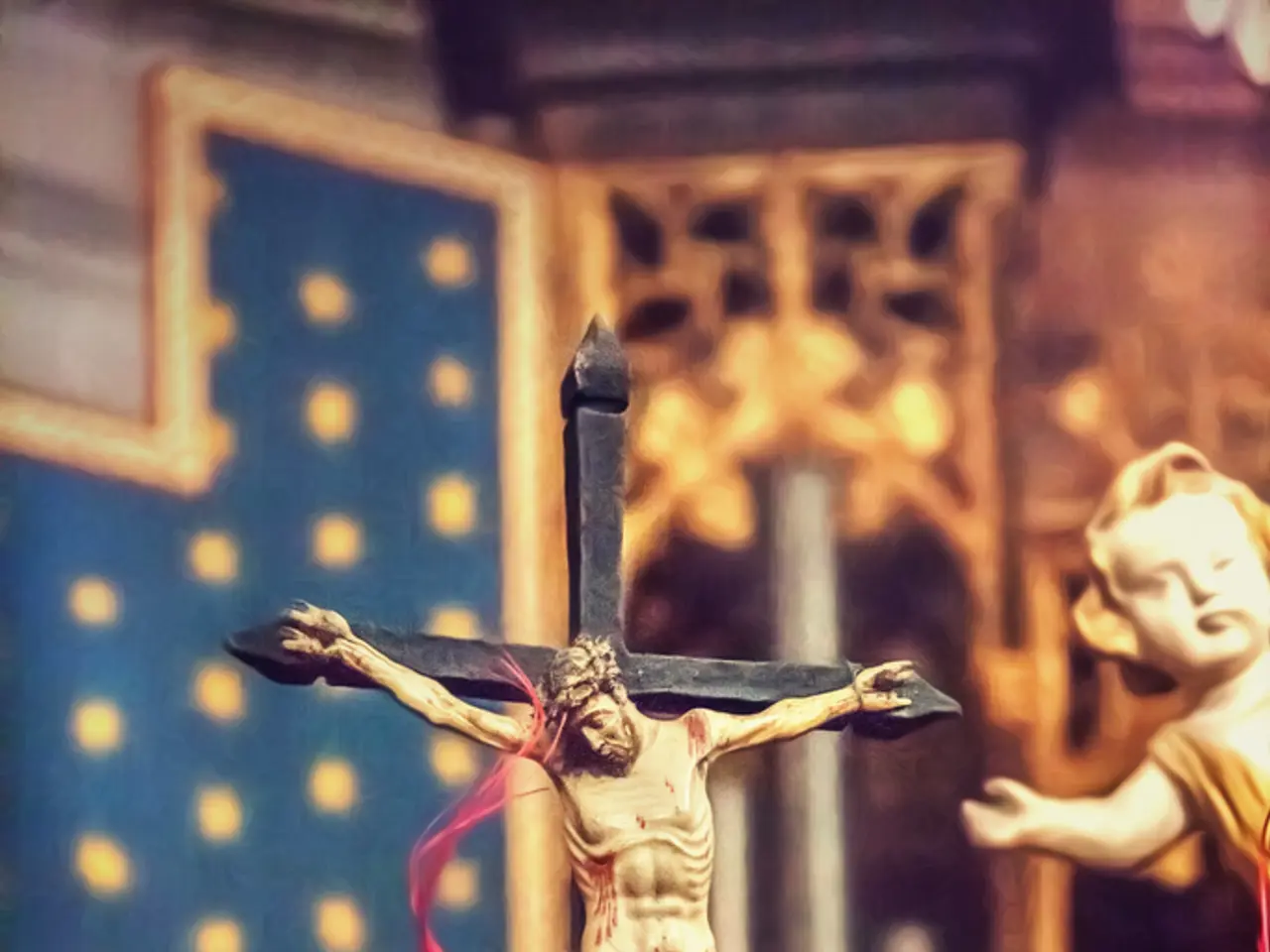Students' Complaint against Crucifix in School in Bavaria Leads to Resolution - Two pupils in a Bavarian school have won their legal battle over the display of a crucifix, securing its removal following claims of religious discrimination.
**Crucifixes in Bavarian Schools: A Historical and Legal Perspective**
The presence of crucifixes in Bavarian schools has been the subject of ongoing debate, reflecting the region's Catholic heritage and the balance between religious tradition and individual rights. In a recent development, the Higher Administrative Court has ruled in favour of students who objected to the display of a large crucifix in their school, marking a significant shift in the ongoing discussion.
The Higher Administrative Court's decision was based on the crucifix decision of the Federal Constitutional Court in Karlsruhe from 1995, which established guidelines for the display of religious symbols in public spaces. In primary schools, the Bavarian Education and Instruction Act states that a cross should be placed in classrooms, but parents can object for religious or philosophical reasons. If no agreement is reached, the crucifix must be removed, as ruled by the Federal Administrative Court in Leipzig in 1999.
However, in this case, the court saw no problem with the alternative lesson, stating it ensures equal treatment of all students. The students, who have since graduated, were repeatedly confronted with the large crucifix at the entrance due to the school attendance obligation. The principal ordered that students who did not attend the three school religious services per year had to participate in an alternative lesson.
The Higher Administrative Court has now ruled in favor of the students, stating that the school should have removed the crucifix. For high schools, the Bavarian law does not provide any regulations regarding crosses or crucifixes. The crucifix in question is characterized by a figurative representation of the body of Jesus.
This ruling comes amidst a broader context of religious symbols in German public schools, particularly in Bavaria. The German Basic Law guarantees freedom of religion but also assigns the state supervisory authority over education. Religious education is often integrated into public school curricula, particularly in Bavaria, where Catholicism historically holds strong cultural significance.
Legal controversies over crucifixes in Bavarian schools emerged in the late 20th century and early 21st century, culminating in rulings by courts including the European Court of Human Rights. One landmark case was *Lautsi v. Italy* (though about Italy, it has implications for Germany and Bavaria) concerning crucifixes in public schools. The ECHR upheld the right of states to display religious symbols like crucifixes in classrooms under certain cultural and historical contexts.
In Bavaria, the presence of the crucifix in classrooms has been defended as part of the cultural heritage and identity. This has sometimes been challenged by parents and students from other religious or secular backgrounds, leading to legal debates on church-state separation and religious freedom.
The implications of such rulings and policies are that Bavaria maintains a tradition of religious symbolism in schools, differentiating it from more secular states in Germany that may avoid such displays. This reflects wider German federalism in education policy, where states have significant autonomy and thus divergent practices regarding religion in schools.
An appeal against the judgment was not allowed, but a complaint can still be filed with the Federal Administrative Court. The decision is not final, as a complaint can still be filed with the Federal Administrative Court. This ruling underscores the balance between respecting religious heritage and protecting individual rights, with Bavaria leaning towards tradition in this balance.
- The Higher Administrative Court's decision in favor of students opposing a large crucifix in their school, based on the 1995 Karlsruhe ruling, highlights the importance of institution (Court) decisions in balancing religious tradition and individual rights, particularly in the context of education-and-self-development, as demonstrated by the ongoing debate about crucifixes in Bavarian schools.
- In the broader context of religious symbols in German public schools, the Higher Administrative Court's ruling on the removal of a crucifix in a Bavarian school, emphasizes the institution's (Court) role in maintaining a balance between upholding cultural heritage and protecting individual rights, aligning with the principle of education-and-self-development, a key aspect in the continuous debate on the presence of religious symbols in community institutions (schools).




